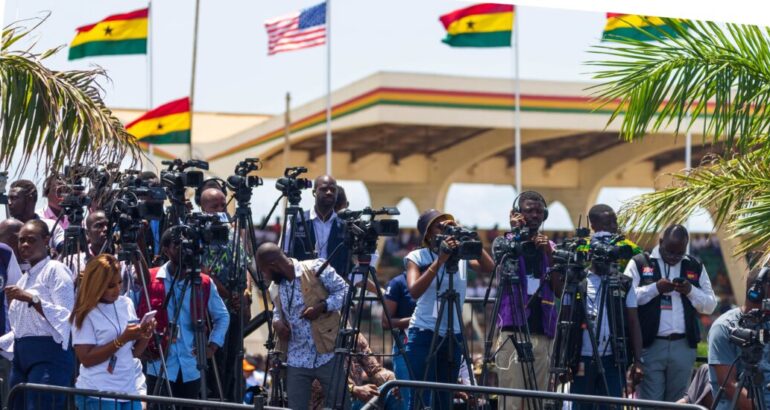A recent survey conducted by Professor Justice Tankebe and Dr. Emmanuel Sowatey of the University of Cambridge has painted a grim picture of the safety of media personnel in Ghana.
The study found that journalists and media workers face a wide range of threats, including physical violence, intimidation, and threats targeting their families. This has created a climate of fear and uncertainty within the media industry.
Furthermore, the survey revealed a significant lack of trust in key institutions, such as the police, employers, and the Ghana Journalists Association (GJA), to adequately protect media practitioners from these threats.
Key Findings:
- Prevalence of Threats: Half of the respondents reported receiving threats through phone calls and messages.
- Fear of Victimization: Media workers expressed deep concerns about physical attacks, unfair dismissals, robberies, and threats while carrying out their professional duties.
- Unsafe Coverage Topics: Reporting on sensitive issues such as election campaigns, state violence, political corruption, and matters involving traditional authorities was identified as particularly risky.
- Low Confidence in Institutions: Many journalists expressed a lack of confidence in law enforcement and other relevant institutions to safeguard their safety and protect their rights.
Recommendations for Action:
To address these critical issues, the survey outlined several key recommendations:
- Strengthen Police Protection: Establish a dedicated media safety unit within the Ghana Police Service to effectively handle threats against journalists.
- Enact Protective Legislation: The government should enact specific legislation that criminalizes violence and threats against media personnel.
- Judicial Commitment: The judiciary and the Attorney General’s Department must demonstrate a strong commitment to prosecuting offenses against journalists.
- Media Owner Responsibility: Media owners should prioritize the safety of their employees by creating safer workplaces and providing adequate support systems.
- Strengthen GJA Support: The GJA should provide comprehensive safety training and robust legal support to equip media workers with the necessary tools and resources to protect themselves.
Urgent Need for Action
The findings of this survey underscore the precarious environment in which Ghanaian journalists operate. Without swift and decisive action from all stakeholders, including the government, law enforcement, the judiciary, and media organizations, the fundamental role of the press in promoting democracy and accountability may be severely compromised.


